



Recent Deals

$530 Million
Asset-Backed Securitization
Placement Agent
Summary
On February 20, 2025, KeyBanc Capital Markets acted as Placement Agent on a $530 million asset-backed securitization (ABS) for Diversified Energy Company PLC (Diversified or the Company). This is Diversified’s tenth ABS transaction, maintaining it as the largest issuer of pre-delivery payment (PDP) securitizations. The ABS was oversubscribed at ~7x. The transaction is collateralized by conventional Appalachian assets.
Diversified (NYSE & LSE: DEC) is a leading independent energy company focused on natural gas and liquids production, transportation, marketing, and well retirement, primarily within the Appalachian and Central regions of the United States. The Company’s strategy is to acquire existing long-life assets and to make investments in those assets to improve environmental and operational performance under a modern field management philosophy. Diversified’s target assets are characterized by multi-decade production profiles and low decline rates.

$123.25 Million
Follow-On Offering
Joint Bookrunner
Summary
On February 19, 2025, KeyBanc Capital Markets acted as Joint Bookrunner on a $123.25 million Follow-On Offering for Diversified Energy Company PLC (Diversified or the Company). Total shares allotted in the offering were 8.5 million excluding overallotment, at an offering price of $14.50. Proceeds will be used repay a portion of the debt expected to be incurred in connection with Diversified’s pending acquisition of Maverick Natural Resources and for general corporate purposes.
Diversified (NYSE & LSE: DEC) is a leading independent energy company focused on natural gas and liquids production, transportation, marketing, and well retirement, primarily within the Appalachian and Central regions of the United States. The Company’s strategy is to acquire existing long-life assets and to make investments in those assets to improve environmental and operational performance under a modern field management philosophy. Diversified’s target assets are characterized by multi-decade production profiles and low decline rates.

$1 Billion
Term Loan B
Documentation Agent
Summary
On February 11, 2025, KeyBanc Capital Markets was party to a successful closing and syndication of a debut $1 billion five-year Term Loan B (the TLB) for Hilcorp Energy I, LP (Hilcorp or the Company). Proceeds will be used to repay borrowings under the senior secured revolving credit facility, which has a borrowing base of $3.5 billion and elected commitments of $2.1 billion. The TLB is pari-passu with the senior secured revolving credit facility. In 2024, Hilcorp acquired: (i) Alaska assets for $1 billion on November 1, 2024, and (ii) Permian assets for $950 million on December 31, 2024. The Company has a pending acquisition in the Permian expected to close in 1Q25.
Founded in 1988 and based in Houston, Texas, Hilcorp is one of the largest independent exploration and production companies in the United States, with a strategic focus on conventional, mature, legacy oil and gas assets. Hilcorp operates assets across Alaska, New Mexico, Texas, Louisiana, Wyoming, and in the Utica in northeast Ohio and western Pennsylvania.

a subsidiary of

has been acquired by

Financial Advisor
Summary
Cain Brothers, a division of KeyBanc Capital Markets, served as exclusive financial advisor to EmblemHealth.
EmblemHealth has sold its wholly owned subsidiary, ConnectiCare, to Molina Healthcare (NYSE: MOH). The transaction enables Molina to add an established government business with a recognized brand, a statewide provider network and a new state, while EmblemHealth will use proceeds to focus on existing business lines. Cain Brothers was engaged as exclusive financial advisor because of its long-standing relationship with EmblemHealth as well as deep domain expertise in managed care.
ConnectiCare is a leading health plan in Connecticut and has been dedicated to making the state a healthier place to live and work since its founding in 1981. ConnectiCare has a range of products and services for businesses, municipalities, and individuals, as well as those who are Medicare-eligible, and is the leading provider of individual health insurance in the state.
EmblemHealth is one of the nation’s largest nonprofit health insurers, with more than 3 million members and an 80-year legacy of serving New York’s communities. The company offers a full range of commercial and government-sponsored health plans to employers, individuals, and families, as well as convenient community resources. As a market leader in value-based care, EmblemHealth partners with top providers and hospitals to deliver quality, affordable care.
Molina Healthcare, a FORTUNE 500 company, provides managed healthcare services under the Medicaid and Medicare programs and through the state insurance marketplaces.

acquired by

a portfolio company of

Exclusive Financial Advisor
Summary
KeyBanc Capital Markets (KBCM) successfully advised Ravelin Technology Ltd. (Ravelin), a leading AI-native enterprise fraud prevention technology platform, on its sale to Worldpay International Group Ltd. (Worldpay), a portfolio company of GTCR. The transaction is expected to close in Q1 2025.
Ravelin is a leading fraud prevention platform trusted by global brands to protect against the myriad threats posed by fraudsters. The company’s fraud prediction and prevention solutions identify payment fraud, account takeover, return and refund abuse, promotion and voucher abuse, and marketplace fraud. Ravelin also performs 3D-Secure identification. With a proven track record of delivering tangible results, Ravelin is committed to helping businesses thrive in an increasingly complex digital landscape.
Worldpay is an industry-leading payments technology and solutions company with unique capabilities to power omni-commerce around the globe. Its processing solutions allow businesses of all sizes to take, make, and manage payments in person and online from anywhere in the world. Annually, Worldpay processes more than 50 billion transactions in 146 countries and 135 currencies, helping its customers become more efficient, more secure, and more successful.

sold 100% of its membership interests
in its community solar portfolio to

Exclusive Sell-Side Advisor
Summary
KeyBanc Capital Markets served as exclusive sell-side advisor to Renewable Properties on the sale of its 11 megawatt direct current (MWDC) solar community solar portfolio to Nautilus Solar. The portfolio was composed of two late-stage community solar assets in Illinois. The transaction closed in January 2025.
Nautilus Solar Energy Overview
Nautilus Solar Energy is one of the largest providers of community solar in the U.S., providing cleaner energy to residential and commercial customers in local communities. Nautilus operates and manages more than 150 solar farms in 12 states and is responsible for financing, development, maintenance, and customer service for the lifetime of the project. Founded in 2006, Nautilus has helped shape the future of solar to provide an equitable and affordable renewable energy choice for all. Nautilus is owned by Power Sustainable, a wholly owned subsidiary of Power Corporation of Canada. Power Sustainable is a multi-platform alternative asset manager with a long-term investment approach focused on sustainable strategies.
Renewable Properties Overview
Founded in 2017, Renewable Properties specializes in developing and investing in small-scale utility, community solar, energy storage, and electric vehicle (EV) infrastructure projects throughout the U.S. Led by experienced renewable energy professionals with development and investment experience, Renewable Properties is active in 16 states and has more than 1.2 gigawatts (GW) of solar and energy storage under development with over 250 MW under construction or in operation. Renewable Properties works closely with communities, developers, landowners, utilities, and financial institutions looking to invest in solar energy systems.

a portfolio company of

acquired by
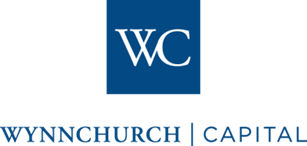
Sell-Side Advisor
Summary
On January 17, 2025, KeyBanc Capital Markets (KBCM) successfully advised Astro Shapes, LLC (Astro Shapes or the Company), a portfolio company of Monomoy Capital Partners (Monomoy), on its sale to Wynnchurch Capital L.P. (Wynnchurch). KBCM was chosen to serve as Astro Shapes’ Sell-Side Advisor based on its industry-leading Metals and Building Products practices and proven M&A execution capabilities.
Headquartered in Struthers, Ohio, Astro Shapes is a leading manufacturer of custom aluminum extrusion products for customers across multiple attractive end markets including Residential and Commercial Building Products, RV/Non-Auto Transportation, and other consumer products. The Company operates three facilities with six state-of-the art extrusion presses, two paint lines, fabrication capabilities, and other value-added finishing services. Astro Shapes is a one-stop shop providing high-quality, customized products to address the unique needs of leading original equipment manufacturers (OEMs) and customers across multiple end markets.
Monomoy is a New York-based private investment firm with more than $5 billion in assets under management across a family of investment funds. Monomoy invests in middle-market businesses that can benefit from operational and financial improvement with a focus on manufacturing, distribution, and business services companies across industrial and consumer product sectors in North America.
Headquartered in Chicago, Wynnchurch is a leading middle market private equity investment firm with more than $9 billion in assets under management. The firm focuses on middle market companies in the United States and Canada that possess the potential for substantial growth and profit improvement.

divested its
Towanda, Pennsylvania Facility and Related Assets
to
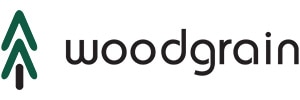
Exclusive Sell-Side Advisor
Summary
On January 17, 2025, KeyBanc Capital Markets (KBCM) successfully advised JELD-WEN Holding, Inc. (JELD-WEN or the Company), on the court-ordered divestiture of its Towanda, Pennsylvania, facility and related assets to Woodgrain Millwork, Inc. (Woodgrain). KBCM was hired by the Honorable Lawrence F. Stengel, in his capacity as the Special Master, pursuant to the Order of United States District Judge Robert E. Payne. KBCM was chosen to serve as Exclusive Sell-Side Advisor based on its industry-leading Building Products practice, proven M&A execution capabilities, and relevant carveout transaction experience.
Headquartered in Charlotte, North Carolina, JELD-WEN is a leading manufacturer of interior and exterior doors, wood, vinyl and aluminum windows, wall systems, shower enclosures, closet systems, and other interior and exterior components used in the construction, repair, and remodel of residential homes and nonresidential buildings. The Company’s Towanda, Pennsylvania, facility produces a wide range of interior door-skin products as well as its MiraTEC- and Extira-branded exterior trim products.
Headquartered in Fruitland, Idaho, Woodgrain is a family-owned, vertically integrated manufacturer and distributor of doors, windows, moulding, trim, engineered and composite lumber, and other related building products for use in new construction as well as repair and remodeling projects. The company’s network of 45 manufacturing facilities and warehouses spread across North and South America supply thousands of dealers in the United States.

received a strategic equity investment from
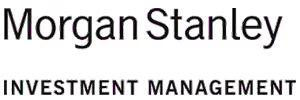
Exclusive Financial Advisor
Summary
On January 21, 2025, Torch Clean Energy (Torch or the Company), a premier U.S.-based utility-scale solar and storage developer, announced a strategic investment from Morgan Stanley Infrastructure Partners (MSIP). This partnership with MSIP marks a pivotal transformation for Torch, enabling it to transition from a development platform to an integrated clean power platform with capabilities across development, construction, and asset management. MSIP’s investment in Torch provides committed capital to expand and transition the Torch platform. KeyBanc Capital Markets (KBCM) served on the transaction as Exclusive Financial Advisor to Torch Clean Energy.
KBCM ran a dual-track process for Torch — a broadly marketed sale of the Company’s development-complete solar and storage portfolio in parallel with a platform equity capital raise marketed to select investors. This approach allowed Torch to consider a transformational platform partnership alongside a non-dilutive asset sale. KBCM highlighted Torch’s differentiated strategy and above-market profitability, which resulted in the Company’s equity partnership with MSIP.
About Torch Clean Energy
Torch Clean Energy is a clean energy and battery storage developer with extensive experience developing, permitting, designing, and building solar, wind, and battery energy storage projects. Torch has originated, developed, and sold 1.2+ gigawatts (GW) of renewable power projects. Based in Boulder, Colorado, Torch Clean Energy has operated as an independent, founder-owned developer since 2015.
About Morgan Stanley Infrastructure Partners
Morgan Stanley Infrastructure Partners (MSIP) is a leading global private infrastructure investment platform with approximately $16 billion in assets under management. Founded in 2006, MSIP has invested in a diverse portfolio of more than 35 investments across transport, digital infrastructure, energy transition, and utilities. MSIP targets assets that provide essential public goods and services with the potential for value creation through active asset management.

acquired

Senior Secured Credit Facilities
Joint Lead Arranger
Joint Bookrunner
Syndication Agent
Summary
On January 14, 2025, KeyBanc Capital Markets (KBCM) successfully closed on an undisclosed amount of Senior Secured Credit Facilities in support of Stellex Capital Management’s acquisition of ICS Holding, LLC. KBCM served as Joint Lead Arranger, Joint Bookrunner and Syndication Agent on the transaction.

$500 Million
Senior Notes
Joint Bookrunner
Summary
On January 8, 2025, KeyBanc Capital Markets served as Joint Bookrunner on a $500 million Senior Notes offering for Kimmeridge Texas Gas, LLC. Proceeds will be used for general corporate purposes.
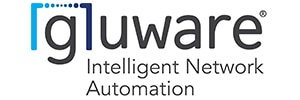
acquired by
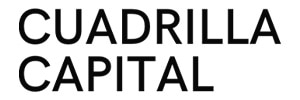
Exclusive Financial Advisor
Summary
On January 8, 2025, KeyBanc Capital Markets (KBCM) successfully advised Gluware, Inc. (Gluware), on its acquisition by Cuadrilla Capital, LLC (Cuadrilla Capital). KBCM was engaged as the Exclusive Financial Advisor because of its industry leading infrastructure software sector expertise and strong M&A capabilities.
Gluware powers the world’s most complex enterprise networks with enterprise-grade, intent-based, multi-vendor, intelligent network automation — ready out-of-the-box or as a unifying developer platform. The leading choice of the Global 2000, Gluware’s self-operating and auto-remediating platform handles millions of network changes simultaneously, flawlessly, and in minutes, saving businesses significant time and resources. Gluware is the only turnkey, intelligent network automation software platform for NetOps and NetDevOps that automates enterprise networks in as little as 30 days.
Cuadrilla is a leading enterprise software investment firm founded in 2021 with over $500 million in assets under management. Cuadrilla partners with exceptional SaaS companies with strong product-market fit and significant strategic value to drive accelerated growth and long-term success. The firm is headquartered in Santa Barbara, California.

$171 Million
Follow-On Offering
Co-Manager
Summary
On January 7, 2025, KeyBanc Capital Markets served as Co-Manager on a $171 million Follow-On Equity Offering for Kimbell Royalty Partners, LP.

a portfolio company of

acquired by

a portfolio company of

Exclusive Sell-Side Advisor
Summary
On January 2, 2025, KeyBanc Capital Markets (KBCM) successfully advised Air Temp Holding, LLC (Air Temp), a portfolio company of Anvil Capital Partners (Anvil), on its sale to PremiStar, LLC (PremiStar), a portfolio company of Partners Group. KBCM served as Air Temp’s Exclusive Sell-Side Advisor based on its industry-leading Industrial & Business Services practice, longstanding relationship with Anvil, and proven M&A execution capabilities.
Founded in 2001, Air Temp is one of the largest independent commercial HVAC, plumbing, and mechanical service providers in the Northeastern U.S. Air Temp offers service, maintenance, retrofits, controls, and energy efficient solutions to longstanding customers primarily serving the education, municipal, manufacturing, and healthcare end markets.
Anvil is a Boston-based private equity firm that invests in manufacturing and service companies based in the Northeastern U.S. Anvil specializes in acquiring established micro-market companies with identifiable potential for outsized value creation.
Founded in 1930 as Reedy Industries, PremiStar is a leading provider of commercial HVAC, plumbing, and building controls services. PremiStar provides industry-leading solutions from 50 strategically located branches in 14 states, with a network of 1,700+ field technicians who service more than 14,000 customers across the U.S.
Partners Group is a global private equity firm with a North America headquarters in Broomfield, Colorado. The firm has ~$149 billion in assets under management and has invested over $221 billion across private equity, private credit, infrastructure, royalties, and real estate strategies.

entered into an agreement with
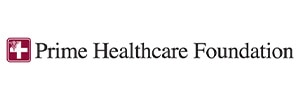
Sell-Side Advisor
Summary
Central Maine Healthcare and Prime Healthcare Foundation have finalized their affiliation agreement, allowing the residents of central, western, and Midcoast Maine to continue to have access to the highest-quality, most advanced health care in the region.
Cain Brothers was engaged by Central Maine Healthcare as its exclusive advisor based on its expertise in the hospital and health system sector and strong understanding of the New England market. Cain Brothers engaged with parties interested in continuing CMH’s mission and finalized an affiliation agreement with Prime Healthcare Foundation. Terms include continued local governance and management, ongoing community commitment, and significant capital investment, and are subject to regulatory approval.
Central Maine Healthcare is an integrated health system serving more than 400,000 residents and includes 600 physicians and advanced practice professionals in more than 40 locations, as well as Central Maine Medical Center in Lewiston, a 250-bed, not-for-profit, Level III Trauma Center that serves as the base for LifeFlight of Maine, the state’s only medical helicopter. CMH also operates the Bridgton and Rumford hospitals, two 25-bed critical-access hospitals serving the Lakes Region and River Valley communities, respectively.
CMH includes two long-term care communities, Bolster Heights, an 84-bed assisted living facility, and Rumford Community Home, an 85-bed, active-living community, as well as Maine’s first nursing and medical imaging programs, Maine College of Health Professions.
Prime Healthcare is one of the nation’s leading health systems, serving more than 2.6 million patient visits annually. With nearly 45,000 employees and physicians, Prime operates 44 hospitals and more than 300 outpatient locations in 14 states. Fourteen of the company's hospitals are members of the Prime Healthcare Foundation, a 501(c)(3) not-for-profit public charity. Based in Ontario, Canada, Prime is nationally recognized for quality care and has been named a Top 10 and Top 15 Health System by Truven Health Analytics. Its hospitals have been named among the nation’s “100 Top Hospitals” 69 times and have received more Patient Safety Excellence Awards from Healthgrades than any other health system in the past eight years.

has raised a development capital facility from

Exclusive Financial Advisor
Summary
KeyBanc Capital Markets, Inc. (KBCM) served as exclusive financial advisor to AMPYR Energy USA (AMPYR or the Company) on its development capital raise from Crayhill Capital Management LP (Crayhill). The transaction closed in December 2024.
Transaction Overview
KBCM was engaged by AMPYR to raise a strategic development capital facility to fund its utility-scale solar and energy storage development pipeline. The facility will provide up to $200 million of capital. KBCM leveraged existing relationships with leading capital providers to conduct a targeted process that resulted in multiple attractive offers, maximizing competitive tension, which ultimately optimized the terms of the facility. KBCM supported AMPYR throughout the entire process, identifying prospective lenders, guiding the marketing strategy, and negotiating structure and terms through transaction close.
AMPYR Energy USA Overview
Founded in 2021, AMPYR specializes in the development, construction, operation, and optimization of utility-scale solar power generation and co-located storage projects across all major markets in the country. AMPYR is a joint venture between AGP Group (AGP) and Hartree Partners (Hartree). AGP has a decade-long track record in development, construction, and operation of renewable IPPs globally. Key partners of AGP delivered more than 3 gigawatts (GW) of renewable assets at a predecessor business and successfully exited the platform to Global Infrastructure Partners. Hartree, a New York-headquartered global merchant commodities company, is active in energy trading and the renewable energy sector with a portfolio of 20 million megawatt hours (MWh) under management.
Crayhill Capital Management LP Overview
Founded in 2015, Crayhill is an asset-based private credit manager based in New York City. Its asset-based investment strategies draw on deep sector expertise and relationships throughout the structured finance and specialty finance markets

partnered with

Sell-Side Advisor
Summary
Cain Brothers, a division of KeyBanc Capital Markets, served as exclusive financial advisor to Theoria Management in its new platform partnership with Amulet Capital Partners.
Theoria Management retained Cain Brothers based on its experience in primary and post-acute care, expertise in value-based care, and relationships with the relevant investors. Cain Brothers, along with the Company’s founder, designed and executed a targeted process to find the ideal partner to help the Company deliver on its long-term vision. This successful process continues Cain Brothers’ strong track record of representing founder-led businesses in partnering with private equity firms.
Theoria Management is a tech-enabled management service organization supporting a comprehensive medical group practice dedicated to serving patients across the care continuum with an emphasis on post-acute care and primary care. Theoria serves facilities across the United States with a multitude of services to improve the quality of care delivered, refine facility processes, and enhance critical clinical relationships. Theoria’s affiliated medical groups offer a broad scope of services including multispecialty physician services, telemedicine, chronic care management, and remote patient monitoring.
Amulet Capital Partners is a middle-market private equity investment firm based in Greenwich, Connecticut, and Walnut Creek, California, focused exclusively on the healthcare sector. Amulet seeks to achieve long-term capital appreciation through privately negotiated investments in healthcare companies, focusing on those segments it believes have the most attractive long-term fundamentals. Amulet currently manages approximately $2.7 billion in assets and is investing out of its third fund, which was oversubscribed and closed in July 2024 with approximately $1.2 billion in capital commitments.
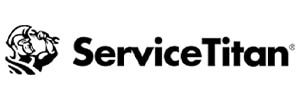
$624.8 Million
Initial Public Offering
Joint Bookrunner
Summary
KeyBanc Capital Markets served as Joint Bookrunner on the $624.8 million Initial Public Offering of 8,800,000 shares, excluding overallotment, of ServiceTitan, Inc. (ServiceTitan or the Company).
ServiceTitan is a cloud-based software platform built to power trades businesses. The Company’s end-to-end solution gives contractors the tools they need to run and grow their businesses, manage their back offices, and provide a stellar customer experience. By bringing an integrated SaaS platform to an industry historically underserved by technology, ServiceTitan is equipping tradespeople with the technology they need to keep the world running.

sold its health plan business to
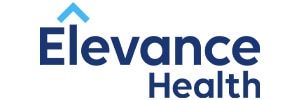
Sell-Side Advisor
Summary
Cain Brothers, a division of KeyBanc Capital Markets, served as exclusive financial advisor to Indiana University Health.
IU Health has sold its health plan to Elevance Health Inc. (NYSE: ELV), with transaction proceeds enabling IU Health to focus on its core health system and serve the health and wellness needs of the Indiana community. The sale strengthens Elevance’s presence in Indiana and improves access to high-quality care. This transaction also further enhances the robust relationship between IU Health and Elevance. The transaction closed on December 31, 2024.
Indiana University Health, headquartered in Indianapolis, is a leading network in the state of Indiana offering top-tier primary and specialty care. IU Health Plans is an established managed care plan known for its local brand, community involvement, high-touch customer service, and extensive product offerings. It offers Medicare Advantage plans in 36 counties to 19,000 members and fully insured commercial plans to 12,000 members.
Headquartered in Indianapolis, Elevance Health offers an extensive portfolio of health benefits through its various health plans, including Medicare and Medicaid plans. Leveraging their broad network of associates and a strategic focus on care provider enablement and digital solutions, Elevance Health continues to be recognized as a leader for its consumer-centered health system for more than 37 million members nationally.

a portfolio company of

acquired

$125 Million
Senior Secured Credit Facility
Joint Lead Arranger
Joint Bookrunner
Summary
On December 6, 2024, KeyBanc Capital Markets (KBCM) successfully closed the syndication of a $125 million Senior Secured Credit Facility for Michael Baker International, LLC (“Michael Baker” or the “Company”), a portfolio company of DC Capital Partners (DC Capital). The $125 million Incremental First Lien Term Loan is interchangeable with the existing portion, and proceeds were used to support the acquisition of AstreaX, Inc. and fund cash to the balance sheet. KBCM served as Joint Lead Arranger and Joint Bookrunner on the transaction.
Headquartered in Pittsburgh, Pennsylvania, Michael Baker is a leading provider of engineering and consulting services and has been solving some of the world’s most complex infrastructure challenges for more than 80 years, with a legacy of expertise, experience, innovation, and integrity. The Company’s services include design, planning, architectural, environmental, and program management. Michael Baker’s clients include U.S. federal, state, and municipal governments, as well as large corporations.
Founded in 2019 and headquartered in Phoenix, Arizona, AstreaX is a leading provider of software development and implementation services for government modernization technologies, with expertise in SaaS, digital identity, enterprise systems, and consumer portal solutions for state departments of motor vehicles.
Founded in 2007, DC Capital Partners is a middle market private equity firm with offices in Alexandria, Virginia, and West Palm Beach, Florida. DC Capital makes control equity investments in middle market companies that provide differentiated and innovative services and solutions in the Government and Engineering markets.

$346 Million
Follow-On Offering
Co-Manager
Summary
On December 3, 2024, KeyBanc Capital Markets served as Co-Manager on a $346 million Follow-On Equity Offering for Crescent Energy Company. Proceeds will be used to fund the acquisition of Eagle Ford assets from Ridgemar Energy Operating, LLC.

$400 Million
Senior Notes
Joint Bookrunner
Summary
On December 4, 2024, KeyBanc Capital Markets served as Joint Bookrunner on a $400 million Senior Notes offering for Crescent Energy Company. Proceeds will be used to fund the acquisition of Eagle Ford assets from Ridgemar Energy Operating, LLC.

$750 Million
Senior Notes due in 2035
$750 Million
Senior Notes due in 2055
Joint Bookrunner
Summary
On December 3, 2024, KeyBanc Capital Markets served as Joint Bookrunner on Coterra Energy Inc.’s offering of $750 million in Senior Notes due in 2035 and $750 million in Senior Notes due in 2055. Proceeds will be used to fund the acquisition of Delaware Basin assets from Franklin Mountain Energy, LLC, and Avant Natural Resources, LLC, and for general corporate purposes.

Clarkston Family Haven
$31.4 million
Construction Loan and LIHTC Equity
Summary
KeyBank Community Development Lending & Investment provided $31.4 million in capital for the new construction of Clarkston Family Haven, a 72-unit affordable housing project in Clarkston, Washington. Seventy units will serve families and individuals earning no more than 30% – 60% of area median income (AMI), with 35 units set aside for those who have or are experiencing homelessness.
Supportive services for residents will include integrated case management to assist in stabilizing housing, income, behavioral health, and addressing addiction issues as well as onsite peer support and mental health counselors. We want to thank Horizon Housing Development and Catholic Housing Services of Eastern Washington for their sponsorship and shared mission to build much-needed affordable housing in Washington.
The financing includes a $12.1 million construction loan and $19.3 million in Low-Income Housing Tax Credit (LIHTC) equity.

Owens Adair II
$17.5 million
Construction Loan
Summary
KeyBank Community Development Lending & Investment provided $17.5 million in capital for the new construction of Owens Adair II, a 50-unit senior affordable housing project in Astoria, Oregon. Thirty-seven units will serve senior citizens earning no more than 40% – 50% of the area median income (AMI) and 13 units will be permanent supportive housing for seniors who have or are experiencing homelessness.
Supportive services will be offered to residents and will include assistance accessing basic needs such as food, clothing, personal care, health services, and employment programs. Additional services will be provided for those experiencing homelessness and will include access to furniture, bedding, cleaning, and kitchen items, peer support for mental health and addiction services, assistance with applications for housing vouchers and mainstream benefits, and navigation and advocacy with healthcare providers. We want to thank the Northwest Oregon Housing Authority and Community Development Partners for their sponsorship and shared mission to build much-needed affordable housing in Oregon.
The financing includes a $17.5 million construction loan.

The Ceresa
$66.5 million
Construction Loan, LIHTC Equity, and Permanant Financing
Summary
KeyBank Community Development Lending & Investment provided $66.5 million in capital to acquire and rehabilitate The Cesera, a 204-unit senior affordable housing project in Garland, Texas. The community is owned and managed by Dominium, a leading national developer, owner, and manager of affordable housing. All 204 units will serve senior citizens earning no more than 40% – 60% of the area median income (AMI).
Supportive services will be offered to residents and will include adult education programs, health screenings and immunizations, counseling programs, computer education, and recreational activities. We want to thank Dominium and Garland Housing Finance Corporation for their sponsorship and shared mission to preserve much-needed affordable housing in Texas.
The financing includes a $20.1 million construction loan, $23.1 million in LIHTC equity, and a $23.3 million Fannie M.TEB permanent loan.



has sold a Maine community solar portfolio to

Exclusive Financial Advisor
Summary
KeyBanc Capital Markets, Inc. (KBCM) served as the exclusive sell-side advisor on the sale of a portfolio of Maine community solar assets to Altus Power. The portfolio was developed through a joint venture between BNRG Renewables, Impax Asset Management, and Dirigo Solar. This transaction represents KBCM’s fifth Maine portfolio transaction and the second transaction representing the joint venture.
About Impax Asset Management
Founded in 1998, Impax is a specialist asset manager with approximately $42.7 billion as of December 31, 2024, in listed and private markets strategies, investing in the opportunities arising from the transition to a more sustainable global economy. The Company has approximately 300 employees in the United Kingdom, the United States, Ireland, Denmark, Hong Kong, and Japan, making it one of the investment management sector’s largest investment teams dedicated to sustainable development.
About BNRG Renewables:
Since 2007, BNRG has been at the forefront of the renewable energy industry. The company specializes in developing, constructing, and operating grid-scale solar photovoltaic (PV) and battery storage projects. From the company’s headquarters in Dublin, Ireland, and offices in the U.S. and Australia, BNRG’s diverse team is dedicated to advancing clean energy solutions. BNRG currently operates in five Organization for Economic Cooperation and Development (OECD) countries and continues to expand its global presence.
About BNRG Maine (d/b/a BNRG Dirigo)
BNRG Maine, doing business as BNRG Dirigo, is a joint venture led by BNRG and Dirigo. As a Maine-based developer of community and utility-scale solar power plants, BNRG Dirigo leverages technology cost reductions to lower the cost of power for Maine homeowners and businesses, with locally generated clean energy that helps revitalize rural communities. Since 2015, BNRG Dirigo has developed a portfolio of more than 350 megawatts (MW) of distributed and utility-scale solar PV in Maine, with nearly 100 MW in operation.
About Altus Power
Altus Power, based in Stamford, Connecticut, is the largest commercial-scale provider of clean electric power serving commercial, industrial, public sector, and community solar customers with end-to-end solutions. Altus Power originates, develops, owns, and operates locally sited solar generation, energy storage, and charging infrastructure across the nation.

$179.1 Million
Senior Secured Credit Facilities
Coordinating Lead Arranger
Joint Bookrunner
Collateral Agent
Depositary Agent
Summary
On November 26, 2024, KeyBanc Capital Markets (KBCM) successfully closed $179.1 million in Senior Secured Credit Facilities (the Facilities) for rPlus Energies for the Pleasant Valley Solar 2 project (PVS2 or the Project). This Project is in Ada County, Idaho, adjacent to the Pleasant Valley Solar 1 project, which was developed by rPlus Energies and constructed in 2023. The PVS2 Facility comprises $97.4 million in Construction Loans, $63.4 million in ITC Bridge Loans, and $18.3 million in PPA LCs. Proceeds will be used to fund the construction and operating periods of the Project. KBCM acted as Coordinating Lead Arranger, Joint Bookrunner, Collateral Agent, and Depositary Agent.
The Pleasant Valley Solar 2 is a 125 MWAC/163 MWDC utility-scale solar project. It is scheduled to achieve commercial operation in the second quarter of 2026 and will generate revenue under a 20-year busbar-settled power purchase agreement with Idaho Power.
This financing marks the second transaction between rPlus Energies and KBCM. In July 2024, KBCM successfully closed senior secured credit facilities for Green River Energy Center.
About rPlus Energies
Founded in 2018, rPlus Energies is an experienced solar, storage, and wind developer based in Salt Lake City, Utah, with a development pipeline of more than 15 gigawatts (GW). Since its establishment, rPlus Energies has successfully developed more than 1.4 GW of solar and wind projects across Utah and Idaho, all of which are either operational or under construction. rPlus Energies is backed by Sandbrook Capital, a private investment firm with more than $2.1 billion in equity commitments focused on investing in leading renewable energy and sustainable infrastructure platforms throughout North America and Europe, and the Gardner Group, a leading Salt Lake City-based full-service real estate developer with an expansive real estate portfolio consisting of 10+ million square feet of commercial and medical building space and 2,500 residential lots.

acquired

from
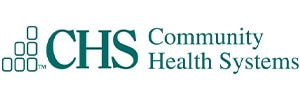
Buy-Side Advisor
Summary
Cain Brothers, a division of KeyBanc Capital Markets, served as exclusive financial advisor to AdventHealth in its pending acquisition of ShorePoint Health Port Charlotte and certain assets of ShorePoint Health Punta Gorda from affiliates of Community Health Systems, Inc. (NYSE: CYH).
AdventHealth signed a definitive agreement to purchase 254-bed ShorePoint Health — Port Charlotte and certain assets of ShorePoint Health — Punta Gorda from affiliates of Community Health Systems, Inc. for $265 million. Based north of Fort Myers, Florida, ShorePoint Health also includes related businesses, such as physician clinic operations and outpatient services. The transaction is expected to close in the first quarter of 2025, subject to regulatory approvals and closing conditions.
AdventHealth is a connected system of care for every stage of life and health. A shared vision, common values, focus on whole-person health, and commitment to making communities healthier unify the system's hospital campuses in diverse regions throughout nine states. AdventHealth owns or manages 50 hospitals in nine states with reported consolidated revenues of $18.9 billion for the past 12 months ending September 30, 2024.
Community Health Systems, Inc. owns or leases 69 affiliated hospitals in 15 states, with more than 11,000 beds, and operates more than 1,000 sites of care, including physician practices, urgent care centers, freestanding emergency departments, occupational medicine clinics, imaging centers, cancer centers, and ambulatory surgery centers. CHS reported consolidated revenues of $12.6 billion for the past twelve months ending September 30, 2024.

a subsidiary of
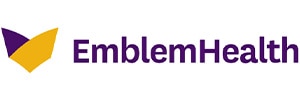
acquired by
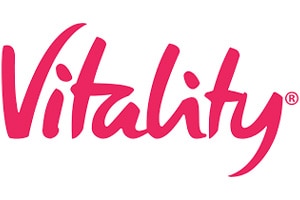
Sell-Side Advisor
Summary
Cain Brothers, a division of KeyBanc Capital Markets, served as exclusive financial advisor to EmblemHealth in the sale of its subsidiary, WellSpark, to Vitality.
Cain Brothers was engaged by EmblemHealth to sell its wholly owned subsidiary, WellSpark, because of its long-standing relationship and employer health expertise. On November 19, Vitality announced the acquisition of WellSpark and its intention to integrate WellSpark’s coaching solutions, offering Vitality’s employer and health plan clients access to a range of new services and additional tools to support their health and well-being.
WellSpark is a health coaching company and digital platform that provides wellness solutions to employers as part of their benefits offerings. Since its beginning in 2013, the company has helped its members live healthier and more fulfilling lives by providing human-to-human support, intervening early for chronic condition management, and breaking biopsychosocial barriers that prevent its members from making lasting change.
EmblemHealth is one of the nation’s largest nonprofit health insurers, with more than 3 million members and an 80-year legacy of serving New York’s communities. The company offers a range of commercial and government-sponsored health plans to employers, individuals, and families, as well as convenient community resources. As a market leader in value-based care, EmblemHealth partners with top providers and hospitals to deliver quality, affordable care.
Guided by a core purpose of making people healthier, Vitality is the leader in improving health to unlock outcomes that matter. By blending industry-leading smart tech, data, AI, incentives, and behavioral science, Vitality inspires healthy changes in individuals and organizations. As one of the largest health and well-being companies in the world, Vitality brings a dynamic and diverse perspective through successful partnerships with the most forward-thinking insurers and employers.
More than 35 million people in 41 markets globally engage in the Vitality program.

$1.5 Billion
Senior Secured Credit Facility
Co-Documentation Agent
Summary
On November 13, 2024, KeyBanc Capital Markets served as Co-Documentation Agent on a $1.5 billion Senior Secured Revolving Credit Facility for Magnolia Oil & Gas Operating, LLC. Proceeds will be used for general corporate purposes.

$400 Million
Senior Notes
Joint Bookrunner
Summary
On November 12, 2024, KeyBanc Capital Markets served as Joint Bookrunner on a $400 million Senior Notes offering for Magnolia Oil & Gas Operating, LLC. Proceeds were for general corporate purposes.
Our Expertise






